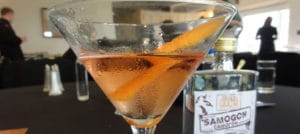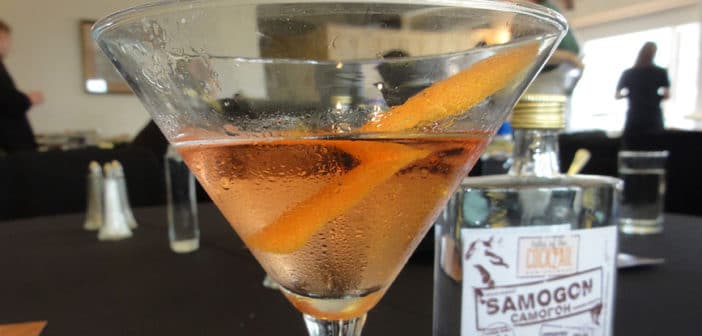 Russia is not exactly known for having a temperate culture. For decades, they’ve been plagued with a high rate of alcoholism, and they now have the fourth largest consumption of alcohol per capita on the planet. Sure, overdoing it on Russian Standard will cause some problems, but the situation is way worse than a bad hangover at the moment. With the recent collapse of the ruble and a dire financial crisis on Putin’s hands, the common folk are turning to highly dangerous concoctions to get their buzz on.
Russia is not exactly known for having a temperate culture. For decades, they’ve been plagued with a high rate of alcoholism, and they now have the fourth largest consumption of alcohol per capita on the planet. Sure, overdoing it on Russian Standard will cause some problems, but the situation is way worse than a bad hangover at the moment. With the recent collapse of the ruble and a dire financial crisis on Putin’s hands, the common folk are turning to highly dangerous concoctions to get their buzz on.
Toxic Concoctions
Russia was going so bonkers with their booze the government raised the minimum price of alcohol by 29 percent last year, adding to previous price hikes. It was a well-intentioned effort to curb the country’s alcohol problem, but the best intentions couldn’t stop their plan from backfiring. With the citizenry strapped for cash due to Russia’s plummeting economy—especially those living in rural regions—the poor folk could no longer afford legal alcohol at the higher price. You’d think the Russian government would have taken a cue from Prohibition in the US—limiting access to booze doesn’t ever seem to stop people from drinking it.
Now the problem has mushroomed, with bootleggers ripping off distilleries and moonshiners cooking up toxic concoctions in the cellar of their homes to push onto unsuspecting alcoholics. In response to this madness, Putin reduced the price hike by 16 percent, but the dismal Russian wages, unemployment rate and the nosedive of the ruble have kept the cost of legal booze out of range of the average citizen’s wallet.
Chugging Cleaning Products
Moonshine has been around for a long time in Russia. During the czarist era, people threw a wrench into the Russian state’s hugely profitable vodka monopoly by distilling loads of their own spirits. And, get this—Russia is one of the only developed countries where making home distilled booze, known as “samogon,” is actually legal. Around the country, hipsters can be seen drinking samogon-style spirits, a bit of a cult fad not unlike the microbrewery craze in the states.
Unfortunately, the poorest Russians have not only started drinking moonshine, but they’ve also started chugging cleaning products just to get a buzz. As far as safety goes, the vodka that’s bootlegged from actual distilleries is the safest of all the illegal booze, and next in line are industrial spirits or moonshine made by shady characters who could give two shits if their customers get ill or kick the bucket while drinking their “alcohol.” But the drinking liquids designed “for hair growth or for cleaning the bath” that Russian alkies are guzzling, according to liquor industry analyst Vadim Drobiz, are especially noxious.
“Today, the illegal vodka market adds up to half of the total market,” Drobiz told the Associated Press, adding that the economic free-fall will just aggravate the problem.
Little Hope on the Horizon
When a country has worse drinking habits than a frat house, chances are no one’s going to be able to talk them out of their next shot—be it a shot of real vodka or something someone’s cooked up in their kitchen. The economic climate of Russia doesn’t look too bright in the imminent future, so Putin’s got to come up with something better than lowering the price of legal alcohol by 16 percent. Maybe he could donate some funds from his yearly $2.5 billion personal expense account to subsidize real alcohol so people don’t die while guzzling cleaning fluids.
Regardless, the mess goes to show you an alcoholic will stop at nothing to get drunk, even if it means drinking Russian-made Lysol.
Photo courtesy of Bart Everson (Flickr: Samogon Cocktail) [CC BY 2.0 (https://creativecommons.org/licenses/by/2.0)], via Wikimedia Commons (resized and cropped)
Sponsored DISCLAIMER: This is a paid advertisement for California Behavioral Health, LLC, a CA licensed substance abuse treatment provider and not a service provided by The Fix. Calls to this number are answered by CBH, free and without obligation to the consumer. No one who answers the call receives a fee based upon the consumer’s choice to enter treatment. For additional info on other treatment providers and options visit www.samhsa.gov.




